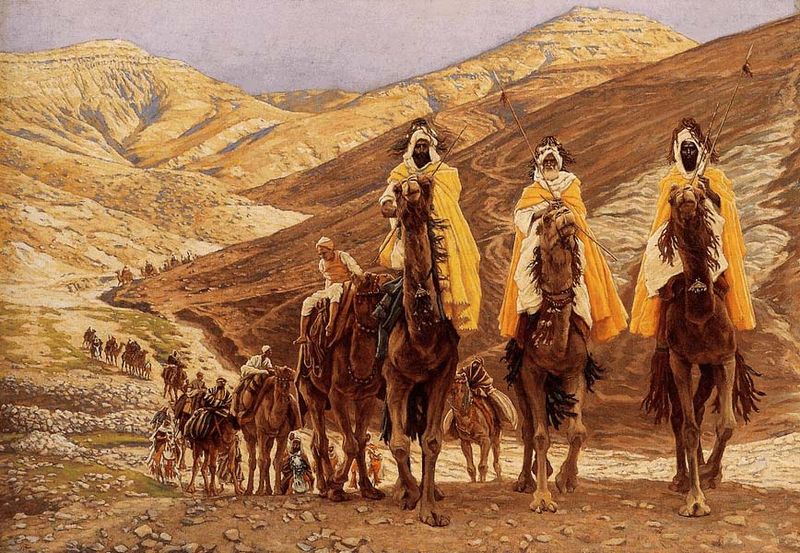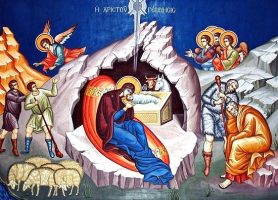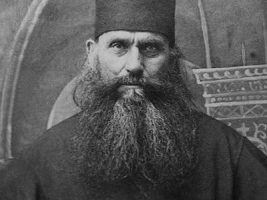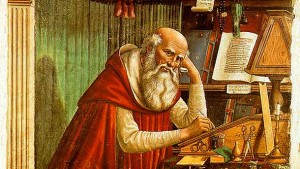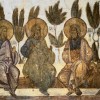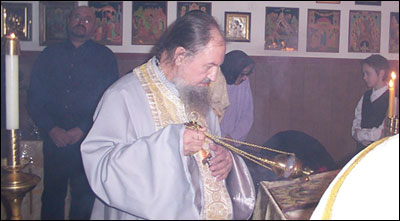 On the Sunday of the Holy Fathers – the last Sunday before the Nativity of Christ – the Church offers us two comforting lessons. The first one is contained in the long enumeration of names which is heard in the Gospel reading of the day. The Evangelist Matthew begins his Gospel with this genealogy, in order to prove that Jesus Christ satisfied the requirements of Hebrew law concerning the Messiah’s provenance from the ancestry of Abraham and David, and that He is, in fact, the expected Messiah.
On the Sunday of the Holy Fathers – the last Sunday before the Nativity of Christ – the Church offers us two comforting lessons. The first one is contained in the long enumeration of names which is heard in the Gospel reading of the day. The Evangelist Matthew begins his Gospel with this genealogy, in order to prove that Jesus Christ satisfied the requirements of Hebrew law concerning the Messiah’s provenance from the ancestry of Abraham and David, and that He is, in fact, the expected Messiah.
But for us, dear brethren, this genealogy has an even deeper significance. In this list of the Lord’s earthly forebears we find not only righteous men, but also great sinners. On a par with the righteous Abraham, Isaac, Boaz and Solomon, we see the Jewish king Ahaz , who dishonored himself with bloody idolworship and was even denied burial; Manasses, who engaged in sorcery and idolatry, and who killed the great prophet Isaiah; and Josiah, who was struck with leprosy.
The Lord deigned to come from such different forebears, in order to show His incarnation from all people and for the sake of all mankind, both good and bad. The Lord came to earth to save all of us, with all our sins and passions. Even more than that – the Lord Himself said: “I came to save not the righteous, but the sinners.” These are very comforting words for us, because they mean that every one of us has the full possibility to be with the Lord.
The second comfort we find in the Epistle reading of the day. The previous week the Church commemorated the Holy Forefathers, i.e. all the venerable ancestors of Christ, the ancient patriarchs and all the prophets, up to the last and greatest of them – St. John the Baptist, while on this Sunday it commemorates the Holy Fathers, i.e. all the righteous men who lived on earth before the birth of Christ.
Apostle Paul describes the great deeds and the miracles that these righteous ones performed: they subdued kingdoms, stopped the mouths of lions, quenched the violence of fire, repelled the armies of foreign hosts, even resurrected the dead. And for all this they endured various tortures: they were stoned, they were sawn through with saws, they were tortured, they died from the sword, they endured mockery and trials, bonds and imprisonment, they were destitute, afflicted and tormented.
And all these righteous ones did not, in their own time, receive the promise, i.e. heavenly bliss. Why? Because, as Apostle Paul explains to us, God had provided something better for us, that they – these righteous ones – would not attain perfection without us.
Regard, dear brethren, what great mercy and great love the Lord God shows us! He delays giving the promised reward to the righteous ones of the Old Testament, – because prior to Christ’s coming into the world and His resurrection the gates of paradise remained closed, – only in order that all men – and that includes even us, dear brethren, – might share in this reward!
Let us, too, love our Saviour with all our hearts, all our souls, all our minds, and let us mentally rush forth to that cave in Bethlehem, where very soon the great mystery of the Nativity of Christ will take place.












